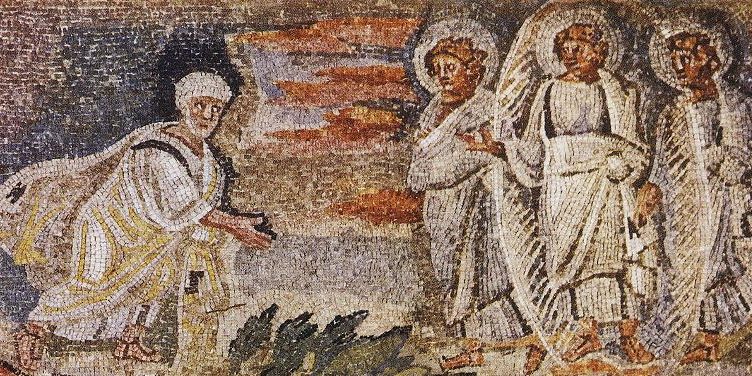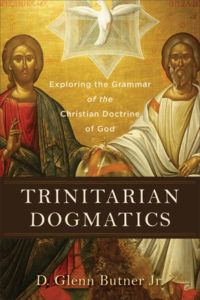
Knowing the Triune God
A dogmatic account of the Trinity thus begins with the affirmation of the Bible as Scripture—a specific canon of texts viewed as uniquely communicating- ing God’s knowledge of God in a manner appropriate to human knowledge. Human knowledge, like the biblical canon, is varied in form, so we can expect a wide range of possible approaches to deriving the Trinity from the Bible. Sometimes, despite Wiles’s reservations, the Bible makes clear propositional claims about God. A dogmatic account of the Trinity must seek to systematize various propositions in the Bible so that we can hold them each as inspired. This act of systemizing can take the form of extensive exegetical analysis of a single verse or passage, or it can consist of surveying broad biblical patterns of speech.
Yet propositions are not the only aspect of the Bible pertinent to our study. Human knowledge also consists of words, narratives, practices, and experiences, among other things. Therefore, at various points in this b ook I will use word studies, examine narrative components of the Bible as well as the overarching narrative of the entire canon, and consider the diverse modes of biblical interpretation deployed by Christians at various points in history. There is no single approach that could incorporate all aspects of the doctrine of the Trinity. The varied and sometimes eclectic ways of using the Bible that are necessary in order to understand the doctrine of the Trinity will become evident as this book unfolds. Yet, each approach is rooted in the same conviction: Scripture is inspired and supremely authoritative, though it is not alone in the theological task.
ook I will use word studies, examine narrative components of the Bible as well as the overarching narrative of the entire canon, and consider the diverse modes of biblical interpretation deployed by Christians at various points in history. There is no single approach that could incorporate all aspects of the doctrine of the Trinity. The varied and sometimes eclectic ways of using the Bible that are necessary in order to understand the doctrine of the Trinity will become evident as this book unfolds. Yet, each approach is rooted in the same conviction: Scripture is inspired and supremely authoritative, though it is not alone in the theological task.
Tradition, too, plays a role in this quest for knowledge of the Trinity, at least if tradition is properly understood. Speaking anecdotally, I have often seen tradition treated at a lay level as dry, old, and outdated ideas from past generations, something that has limited influence on modern church life and for good reason. Such a perspective does not recognize the ways tradition has been guided by God, albeit not to the same degree as Scripture.A dogmatic account of the Trinity must seek to systematize various propositions in the Bible so that we can hold them each as inspired. Click To Tweet
A full account of biblical inspiration lies beyond the scope of a work on trinitarian dogmatics, but brief consideration of one model of inspiration can illustrate my point. A. A. Hodge, a noted American theologian, described biblical inspiration as a four-step process. Through providence, God brought the biblical authors to the right historical moment. Subsequent spiritual illumination provided by the Holy Spirit ensured genuine religious insight, opening the Christian to receive revelation, which was then accurately recorded through inspiration. In seeking to ground our knowledge of the Trinity in God’s self-revelation, we might be tempted to discard tradition on the grounds that it is rooted in human knowledge, not in God’s knowledge of God. Hodge’s four-stage process of inspiration shows why this would be a mistake. In the Old Princeton theology that Hodge represents, illumination was thought to belong to all Christians who have received the Holy Spirit (see, e.g., John16:13–15). Hodge notes, “Spiritual illumination opens the organ of spiritual vision and clarifies it.”
All Christians, then, having received the Spirit, have some clear sense of God as mediated in Scripture and therefore can guide one another in the interpretation of Scripture. Similarly, they can influence the way that we use philosophy to make sense of questions raised by Scripture yet not explicitly resolved therein. Tradition is not infallible in the way that Scripture is, so critiquing it is always a possibility. Still, Protestants have been wise in their use of tradition as a test of the truthfulness of a given interpretation.Scripture is inspired and supremely authoritative, though it is not alone in the theological task. Click To Tweet
Reason, too, has a role to play in dogmatics, and necessarily so. When we engage in biblical hermeneutics, we are using reason, and it is often difficult, for example, to clearly identify the boundaries between hermeneutics and philosophy. Philosophy also contributes much vocabulary that helps provide clarity when speaking of conclusions drawn from Scripture. Here we must see philosophy as Anselm of Canterbury did, as a resource for faith seeking understanding. The idea is not to impose a foreign framework on the biblical text. Rather, philosophy can help make explicit what was only implicit in the Bible. Yet, we must heed Barth’s worries about human reason. God created the world of space, time, and matter, and he therefore exceeds that world and all our experiences of it. This truth should significantly chasten our confidence in our intellectual abilities.
Without attempting here to explore the full ramifications of divine otherness or to resolve the philosophical difficulties that arise from it (such matters are more proper to other dogmatic loci), I must make note of one major dogmatic commitment that properly serves this chastening work. As endorsed at the Fourth Lateran Council (1215), the doctrine of analogy insists that God is different from the world that he has created but recognizes that creation bears some relation to its Creator. This similarity amid greater difference allows us to use human words and concepts of God yet requires that we always explain how their meaning differs when they are used of God rather than created realities. As Katherine Sonderegger remarks, Lateran IV’s insistence on a “movement from likeness to unlikeness” is “the scholastic expression of Divine Holiness, the Lordly Act of setting Himself apart.”
When grounded in Scripture, our use of reason does, by God’s grace, lead to knowledge, but it remains a knowledge of the God whose holiness prompted even the seraphim of Isaiah’s vision to cover their eyes. Even though our language is restricted by the principle of analogy, in our human knowledge of the holy God we see the Trinity, which early Christians glimpsed even in the recurring threefold affirmation of that holiness—“Holy, holy, holy is the Lord of hosts; the whole earth is full of his glory!” (Isa. 6:3 ESV; see also Rev. 4:8).

